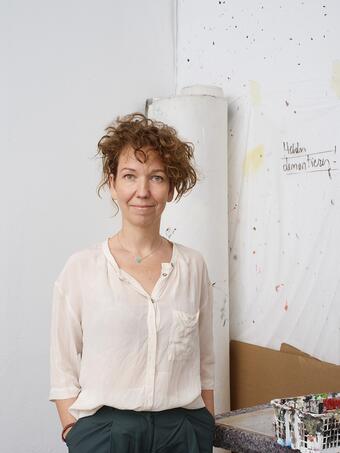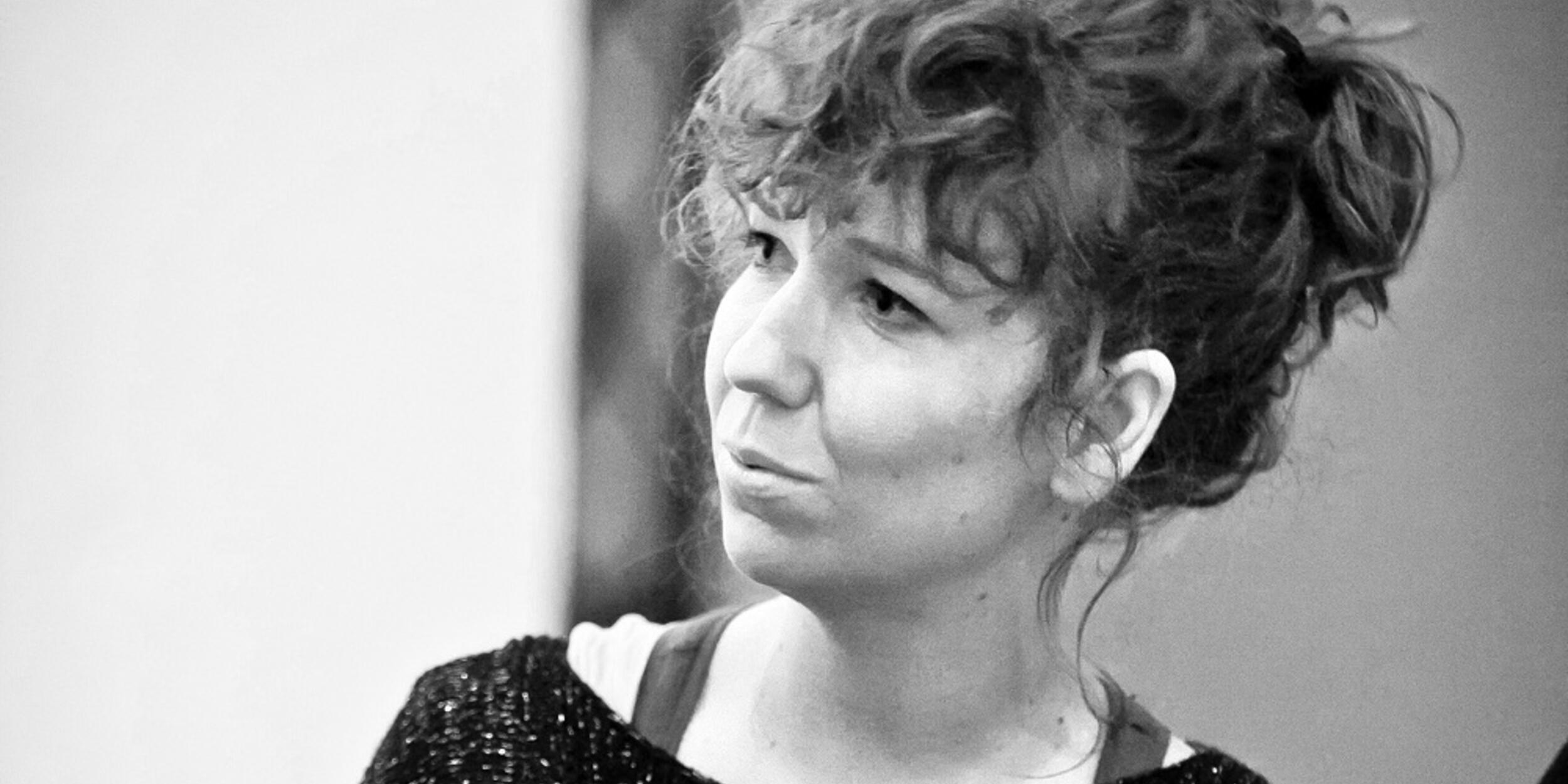Elisabeth Schmirl is a visual artist and professor of art practice at the University Mozarteum, Innsbruck location, for the painting and graphic arts education classes. She is an exhibition maker and cultural worker, chairwoman of periscope, an initiative for art and contemporary people as well as SUPER, an initiative for interim use of empty spaces. In all their roles, the main thing is to allow space for action to emerge and thus to develop new maps and navigation possibilities for themselves and others. UN: Ms. Schmirl, is visual education as a subject that teaches design in a very comprehensive sense even more important today than before the invention of computers? Elisabeth Schmirl: The foundation of an artistic practice that is part of visual education always works with the why, with the questioning and forming of new systems and criteria, with
alternative scenarios and sorting functions
.
This inherently artistic questioning, why one does things, helps enormously to find one's way in the system world. Exciting, of course, is also the question of
what just doesn't work, where structures fail and how one relates to them - illuminating the dark corners, if you will. The physical act of artistic practice, of
making
something with your hands, is also
an important aspect. It captivates and inspires and sometimes runs away with you. In the interplay it is always necessary to take on the role of patient, precise observer.
Often you don't know where it will all lead. But it is precisely in this processual observing competence, which initially has little place in an exploitation society, that the inventions of
tomorrow
are to be found.
It is the basis for room for maneuver, for rethinking, reimagining and thinking differently even beyond art. So if one understands artistic thinking and acting in the sense of reflecting-playing perceiving, and shaping processual doing, then I am quite convinced of its relevance. In any case, it seems that we urgently need to find ways of dealing and to justify for ourselves, but also for future generations why we act as we do. To conduct this kind of dialogue is the "core business" of artistic processes. The task of making this tangible and communicating it lies with visual education. UN: Do you have a concrete example of this? Schmirl: Do you know the wonderful cards that are currently being exhibited on lithography at the Haus der Natur? There are artistically printed detailed illustrations from the animal world. Above all but one can catch a glimpse of the ideas, the worldview of a time long gone by. One recognizes the drawing man behind it and very much interpretation and subjective view. Now, one can and should come to terms with the wonderful technique of lithography but beyond that, one can also become aware that all our algorithms, systems, and assumptions about the world are colored by our senses. And because we do so much research outside of ourselves, the blind spot is with us as observers and observers. In the artistic approach the cartographer, the map, the territory, and also the way and manner in which the map is made are equally interesting. This helps understanding and makes theworld and old or even one s own map so much more exciting. Moreover, it s a very empathic approach, because it s necessary to go to other positions. If you want an alternative cartography, the processes there must in any case not
be designed in terms of their usefulness. UN: What does the study of visual education have to do artistically and didactically today for the future?schmirl: We should try to create enough time and space for artistic dialogues and processes, for these poetic condensations, because all these experiences have to be made by the students in order to be able to convey them later. And of course we re also trying to save the world every day (laughs). By seeing ourselves, as Peter Weibel put it as critical engineers of the future. A nice co-reflection for this is our semester exhibition Alice & Gulliver, which we developed in the Visual IBK team in the winter semester. We ve been playfully experimenting with model approaches and technologies and integrating the findings into future projects. UN: As a visual artist, you ve long been concerned with the visual self-staging and masking "pathos formulas of today" (Bärbel Hartje on "Youer than You"), drawing on an extensive digital archive to uncover chains of association.what do you observe in the process? Schmirl: It is precisely this interest in sorting, ordering, arranging, structuring, and in proportionalities that crops up again and again in my work. Much happens intuitively. I observe in it my own way of dealing with what is there, my reaction to the amount of data, to the complexity of today s time. Ariadne von Schirach once said: "We are all here, all the rest too, very messy the whole thing. But we humans are adaptable, sensitive, creative and dreaming creatures. And now it s time to clean up." I can only agree with that, and that is probably actually the task for all of us - sorting out what is already there, dealing with it. UN: Besides your interest in art production in the digital age and digital society in general you run a risography and print workshop in Salzburg: #printisntdead. How do you combine the two worlds? Schmirl: The question of reification, of how I deal with real objects that I m creating as an artist, comes up for me when I ve spent days sorting through my digital folders. It is part of my process. Here too, I try to clarify the question of why for myself. What do I find exciting about using historical printing techniques, diazotypes or risographs to embody constructs from digital archives? For me, these are all deeply physical and material sensations that these techniques evoke, processes that I have to work out for myself. The greater the distance of the worlds, the more attraction it has for me to see why and where the threads are to be tied. I act there very intuitively and am always surprised myself about the findings of these research trips. UN: You are not only a visual artist, teacher and mediator, but also the chairwoman of periscope and SUPER. What is exciting about these initiatives? Schmirl: The appeal and the approach are similar to my role as artist and mediator. In all my roles, at least in one aspect it is about creating space for action, drawing a new map of the terrain for oneself and for others and letting it emerge . Salzburg and Innsbruck are great cities with a lot of history and countless layers. As a creative artist finding space for oneself here, mental and physical alike, is a challenge. SUPER takes up this need on a broader level and periscope is dedicated to these spatial issues in the field of visual arts. With both initiatives we try as a team as cultural workers to create spaces of cultural exchange, of knowledge, of togetherness and to let them become part of our map of lifeworld . (First published in the Uni-Nachrichten / Salzburger Nachrichten on March 6, 2021)
Department of Fine Arts & Design - Innsbruck

